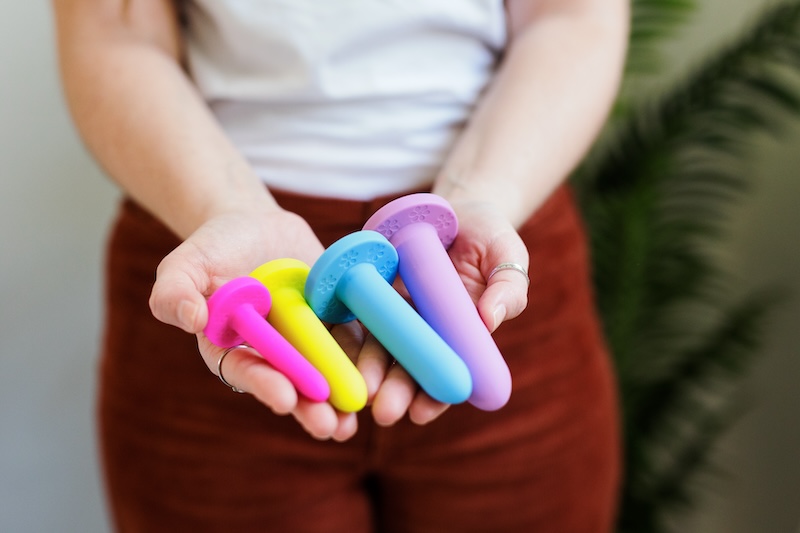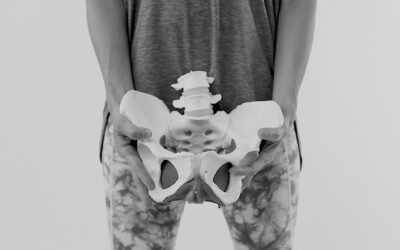Nothing kills your post-sex high like feeling that your vagina is on fire. Vaginal burning after sex is not just uncomfortable, it can be concerning, leaving many wondering, “Why does my vagina burn after sex?” While a burning vagina after sex can have many different causes, the good news is that it’s not something you have to suffer with. Once you understand what’s causing your symptoms, there’s usually a clear path for treatment.
Understanding vaginal burning after sex
Vaginal burning after sex (or even during sex) can impact your quality of life — and your intimate relationships. This burning feeling can result from a simple lack of lubrication to more complex medical conditions.
Vaginal burning can feel like a painful, stinging, or irritating sensation in your vulvar or vaginal area. And the intensity of that burning feeling and how long it lasts varies between people.
Some may experience pain that is sudden and short-lived, usually because of temporary factors like not having enough lube during penetration or a minor infection.
For others, vulvar or vaginal burning can become chronic and last for months or even years. A common condition associated with chronic vaginal burning is known as vulvodynia, which is vulvar pain lasting more than 3 months without an identifiable cause.1
Common causes of vaginal burning after sex
Dealing with a burning vagina after sex can take a toll on your sexual health, your relationships, and your self-esteem.
No matter what it feels like to you, it’s important to recognize that this sensation isn’t normal and may indicate an underlying issue that should be evaluated. Here are some of the most common causes.
Friction and lack of lube
One of the most common causes of vaginal burning after sex is that there just wasn’t enough lubrication.
The vagina is naturally warm and moist and has three main ways of making extra natural lubrication for sex to reduce friction:
- Bartholin glands2: A pair of glands near the bottom of your vaginal entrance secrete a lubricating mucus
- Vaginal fluid3: Your vaginal walls secrete fluid (plasma) during arousal
- Cervical mucus4: Also known as vaginal discharge
But factors like stress, hormonal changes, or certain medications can lead to vaginal dryness, friction, and a burning sensation during or after sexual activity.
Infections and STIs
Various infections can cause a burning sensation after sex, including:
- Yeast infections
- Urinary tract infections (UTIs)
- Bacterial vaginosis
- Pelvic inflammatory disease (PID), an infection of the reproductive organs including the uterus, ovaries, and fallopian tubes
- Sexually transmitted infections (STIs) like chlamydia, gonorrhea, or genital herpes
Allergic reactions
Vaginal burning can be because of an allergic reaction or sensitivity to things like:
- Latex condoms
- Lubricants
- Spermicides
- Semen5(rare but possible)
Pelvic floor dysfunction
When pelvic floor muscles are overly tight or hypertonic, they can cause:
- Reduced blood flow, leading to irritation and pain
- Nerve irritation, resulting in burning sensations
- Penetration to be difficult or painful
- Muscle spasms during or after intercourse
This muscle tension may lead to conditions like vaginismus or vulvodynia, making sexual intercourse painful, uncomfortable, and often impossible.
Hormonal changes
Perimenopause, menopause, and other hormonal fluctuations including lactation or taking hormonal birth control, can cause your vulvar and vaginal tissues to become thin, dry, and fragile (aka vaginal atrophy), leading to burning during and after sex.
Nerve issues
Conditions affecting the nerves in the vulvar and vaginal tissues, such as pudendal neuralgia and postherpetic neuralgia, can cause pain or burning during and after sex.
When to see a medical provider
Check in with your medical provider about any new, persistent, or worsening vaginal burning, especially if:
- You experience unusual discharge, odor, or bleeding
- Pain interferes with daily activities or sexual enjoyment
- You suspect you may have an STI
- Home remedies and over-the-counter treatments don’t provide relief
- You’re pregnant
Quick tips for preventing vaginal burning after sex
As you wait to be seen by your healthcare provider, here are some quick tips you can try to ease pain or vaginal burning during sex:
- Use adequate lubrication — you can never use too much (check out these pelvic PT-approved options)!
- Practice good vulvar hygiene.
- Communicate with your partner about comfort, pace, and try different positions during sex.
- Consider using condoms if you’re sensitive to sperm (non-latex condoms if you’re allergic to latex).
- Try more foreplay to enhance your natural vaginal lubrication or stick to outercourse entirely!
- Stay hydrated and maintain a balanced diet.
Treatment options for vaginal burning
The treatment for vaginal burning after sex depends on the underlying cause:
- For dryness: Try water-based, silicone, or oil-based vaginal lubricants during sex. You can also add vaginal moisturizers to your daily routine.
- For infections: Antibiotics or antifungal medications can be prescribed.
- For allergic reactions: Switch to hypoallergenic products and check with a dermatologist for more guidance.
- For hormonal issues: Chat with your physician about treatment options, including hormone replacement therapy if you’re a candidate.
- For pelvic floor dysfunction: Pelvic floor physical therapy is the gold standard in evidence-based treatment options. Treatment typically involves pelvic floor muscle rehabilitation, manual therapy, relaxation techniques, gentle stretching exercises, and education on returning to sex once you are ready. Using vaginal dilators may also be recommended in some cases.
Pelvic floor PT for vaginal burning after sex
Don’t let vaginal burning and pain during or after sex hold you back from a fulfilling sex life. While this issue can be frustrating, effective solutions are available. Understanding the root cause is key to finding the right treatment, whether it’s addressing dryness, infections, allergies, or pelvic floor dysfunction.
Ready to take control of your sexual health? Join The V-Hive, our supportive online community, for expert advice and at-home workouts to decrease pelvic floor muscle tension and pain to get relief from vaginal burning with sex. Start your FREE 7-day trial today!
References:
- Faye, R.B., et al. (2023). Vulvodynia. StatPearls.
- Quaresma, C., et al. (2023). Anatomy, abdomen and pelvis: Bartholin gland. StatPearls.
- Science Direct. Vaginal lubrication.
- Science Direct. Cervical mucus.
- Lavery, W.J., et al. (2020). An Overview of Seminal Plasma Hypersensitivity and Approach to Treatment. J Allergy Clin Immunol Pract.





